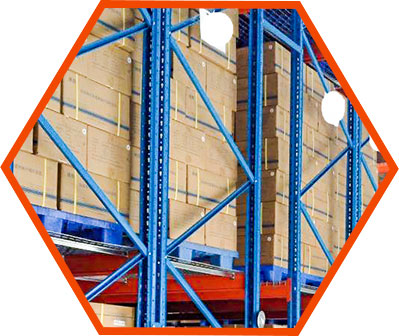From a safety point of view, handling equipment should not circulate under the stored loading unit, so the loading sequence must be bottom up and front to back, and unloading must follow the reverse order.
According to customer requirements and needs, these racking systems can be designed in accordance with the LIFO principle (last in, first out). In this system, racks are loaded and unloaded from one side of the same aisle (the first pallet placed is the last pallet to be unloaded) Or FIFO principle (first in first out), by which goods are stored from one side and unloaded from the other side (the first pallet stored is the first pallet to be unloaded from the shelf).
Customer Cases
The design of these logistics solutions is very flexible and can be adapted to the characteristics of the loading unit, including weight and size, as well as the number of depth and height pallets required or permitted by the warehouse and existing infrastructure.
How does a drive in racking system works? From a structural point of view, the drive in the rack type is composed of a gantry structure, which is composed of deep and shallow pillars, beams and pallet rails to support the pallet loading cargos. The weight and workload are collected by the pallet guide rails and transferred from the support beams to the columns, and finally all the loads are transferred to the floor of the building.

LIFO (last in, first out) or FIFO (first in, first out) load methods.
Deep lane storage reduces space usage, cuts costs and holds more loads.
Multiple access aisles eliminated.
Extra control over inputs and outputs.
More storage density instead of the direct access of Pallet Racks.
Specifically designed for your pallets and forklifts.

We will reply as soon as possible. Thank you for your support for our warehouse storage equipment.